Stopover in Sète 2024: SOS Méditerranée, the duty to save, the strength to bear witness
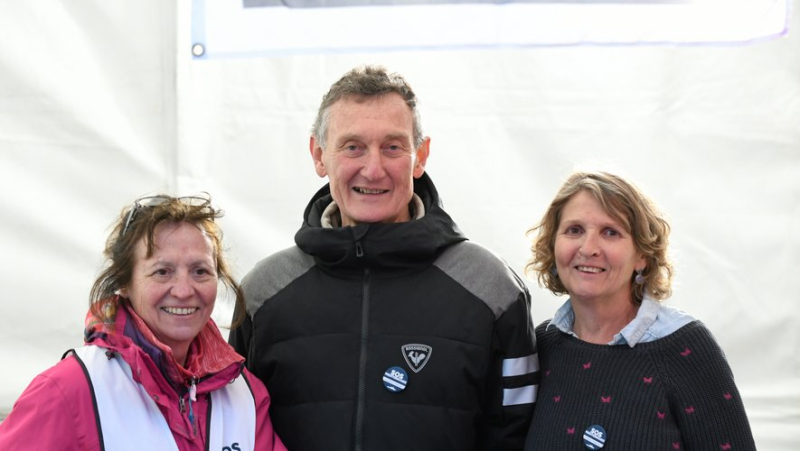
Une partie de l’équipe héraultaise de SOS Méditerranée. Midi Libre – DORIAN CAYUELA
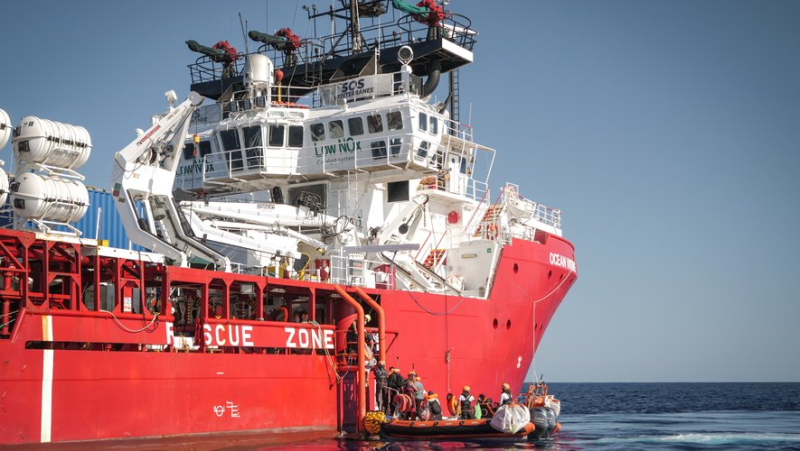
Une opération de sauvetage menée par l’Ocean Viking – Camille Martin Juan
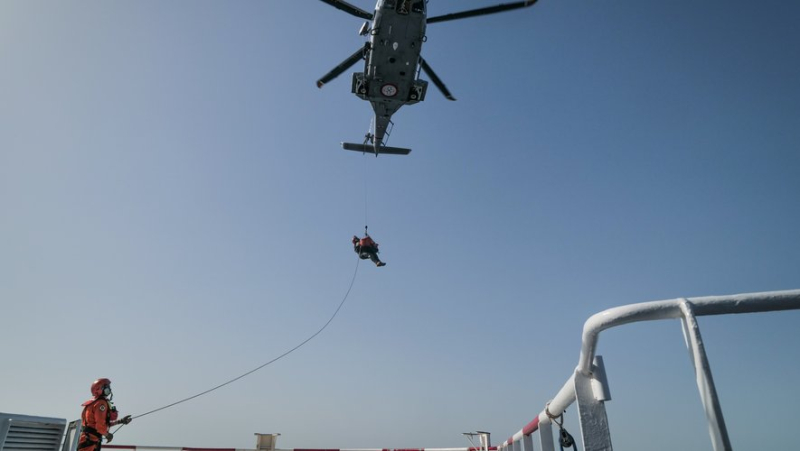
Un hélitreuillage en mer Méditerranée. – Camille Martin Juan
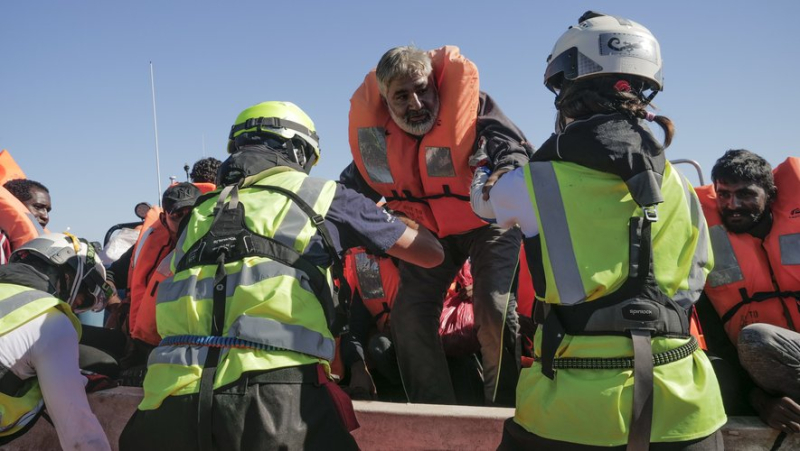
Une opération de sauvetage à bord de l’Ocean Viking. – Camille Martin Juan
Sauver, protéger, témoigner : avec ce triptyque en guise de devise, l’association SOS Méditerranée poursuit son action le long des routes migratoires les plus mortelles au monde.
An open-air exhibition on their action at sea, life jackets hung on their barnum… If on the Escale site in Sète, the SOS Méditerranée stand occupies a special place, it is mainly because the figures put forward by the association are dizzying. More than 23,000 deaths in the Mediterranean since 2014 and nearly 40,000 people saved from the waters by their action since the start of operations in 2016, over more than 400 operations.
"We are here because there is a void"
"What purpose we serve ? To compensate for the failure of European States which do not fulfill their obligation to provide assistance." Lise Valette, Hérault co-referent of the association, affirms: " we are here because there is a void: in an ideal world, our structure would not exist". Engaged since 2017 within SOS Méditerranée, this former journalist, now a French as a foreign language (FLE) teacher, ensures, with her fellow volunteers, the mission "testify" from the triptych of the association: "save, protect, testify".
The consequences of the Piantedosi decree
On January 2, 2023, a decree-law known as the "Piantedosi Decree" was introduced in Italy, calling for & ;quot;urgent provisions for the management of migratory flows". Concretely, this obliges any vessel having carried out a rescue to immediately proceed to a safe port. The assigned disembarkation ports are sometimes far from the intervention zones, "this makes it impossible to rescue boats in distress for long periods", saccording to SOS Méditerranée. This decree also provides for fines for vessels failing to comply with this injunction. Thus, in 2023, the Ocean Viking suffered 15 administrative detentions from the Italian authorities, which is equivalent to 40 days and nights spent in port.
"The Hérault antenna is very active, we are around 80 people", she explains. Volunteers who speak out about the association at major cultural events but also in school environments, where "young people are very receptive to [their] speech". "Of course we are part of this long tradition of solidarity among seafarers, but we are simply trying to apply the law", confides Jocelyne Galand , another member of the association who works with young audiences.
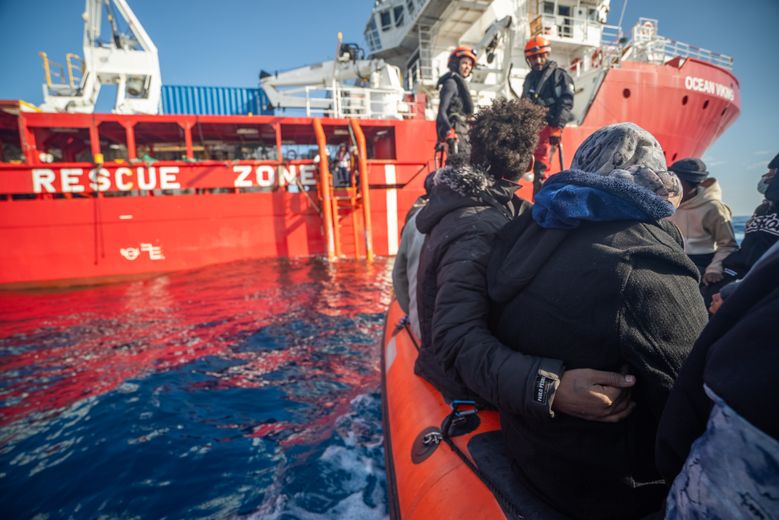
The Ocean Viking and the SOS Méditerranée teams in action.
Boats turning away
"Every captain has an obligation, as far as he can do so without serious danger to his ship, its crew and its passengers, to come to the aid of any person in danger of being lost at sea. Any failure to fulfill this obligation is punishable by law. law." Regarding the obligation to provide assistance, the legislator is categorical. In fact, Lise Valette notes that certain boats sometimes tend to turn away from migratory routes so as not to have to comply with them.
This is obviously not the case with the Ocean Viking. The association's ship cruises in international waters where it rescues boats in distress along the "central route of Mediterranean" which passes off the Libyan and Italian coasts. Under the Norwegian flag, theOcean Viking intervenes within the very strict framework of rescue at sea. "Formally, rescue lasts from the recovery of people at sea until their disembarkation in a safe port", explains Lise Valette.
24 000 euros per sea day
It is the designation of these safe places which poses the most problems for the association today. Following an Italian decree (see box), after rescuing people at sea, rescue ships must immediately head to one of these ports, sometimes very far from the scene of the accident. interventions.
This has exploded the cost of a day at sea for the Ocean Viking, which rises today at 24,000 euros per day. This is why SOS Méditerranée continues its call for donations in order to continue its activity, which is more essential than ever.
I subscribe to read more




